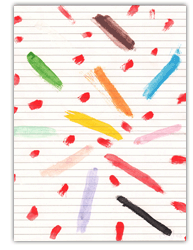Home > Counselling & Psychotherapy > Play Therapy For Children
Play Therapy For Children
 Children between year three and eight need a very specific handling... an appropriate contact, space and safe ground to experience himself/herself and his world around....
Children between year three and eight need a very specific handling... an appropriate contact, space and safe ground to experience himself/herself and his world around....There are some who show a very deviant behaviour such as overly withdrawn, violent, hyperactive, distracted, inactive, scared or angry.
These children need a special handling by an expert play therapist. The child is initiated into play therapy on a twice a week basis with change as its focal point.
Parents / relatives would be brought into the picture as and when necessary. A fifty -hour programme has been designed to help parents of children who may be resorting to different kinds of behaviour in an attempt to cope with their environments, i.e., stammering, bed-wetting, lying (young ones), being aggressive or withdrawn etc.
Right from the time of birth, no one quite understands the child like a parent does... With this knowledge the play therapist takes over and inducts the child into play therapeutics, one step at a time.
- Develops a warm, friendly relationship with the child and establishes a rapport.
- Accepts the child exactly as he/she is.
- Establishes an environment where the child feels free to express his/her feelings completely.
- Is alert to recognize the feelings the child is expressing and reflects those feelings back to the child in a manner that he/she gains insight into his/her own behaviour.
- Maintains a deep respect for the child's ability to solve his/her own problems, if given an opportunity to do so. The responsibility to make choices and to institute change is on the child.
- Does not attempt to direct the child's actions or conversation in any manner. The child leads the way, the therapist follows.
- Does not attempt to hurry therapy along. It is a gradual process and the therapist knows this.
- Establishes only those limitations that are necessary to anchor therapy to the world of reality and to make the child aware of his/her responsibility in the relationship.
- Uses games and play material including books, dolls, cars, puppets, building blocks and play things a child is comfortable with.
